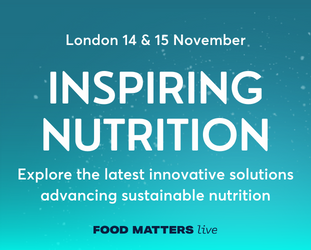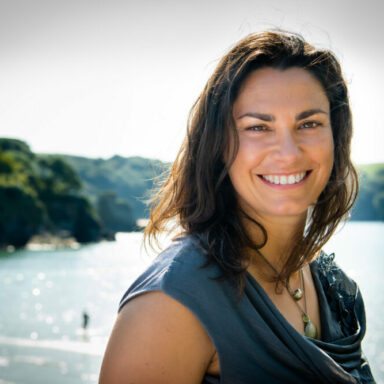Personalised nutrition: the rise of bespoke diets

Cooking for my family of four is tricky. Two of us are vegetarian, my son doesn’t eat pork or shellfish for religious reasons, while my husband, a carnivore, doesn’t like eating the nuts, seeds, spicy flavours, lentils or wholegrains that I love. I’m constantly preparing multiple meals at once to keep everyone fed and hungry.
This level of personalisation is solely based on our different personal priorities, likes and dislikes. But the new frontier of personalised nutrition is taking this one step further, adapting our individual diets to optimise our longterm health by taking everything from DNA and ethnicity to blood sugar responses and gut microbiomes into account.
I want to find out how scalable – and feasible – this really is but first, let’s explore the meaning of personalised nutrition.
What is personalised nutrition?
There’s no official definition but broadly speaking, personalised nutrition is an approach that uses intricate information about individual characteristics to develop targeted nutritional advice or products that optimise your health.
As Vimal Karani, Professor in Nutrigenetics and Nutrigenomics at the University of Reading, outlines, the relatively new field of personalised nutrition is rapidly evolving. “Ten years ago, personalisation of your diet was based mainly on your DNA or genetic makeup, but now with more advanced technologies, companies are starting to use genetic information alongside information about your gut microbiome, your metabolism, your ethnicity and lifestyle factors.” He calls this more comprehensive approach ‘precision nutrition’. But while some companies are looking at multiple factors, he says that, “there’s still a long way to go before we get a true picture about what exactly is happening. It might take another decade or two to implement precision nutrition.”
ZOE, the personalised nutrition programme
Forecasts suggest this sector could be worth anything between $15bn and $25bn within the next five years. In March, ZOE, the personalised nutrition programme and app founded by Professor of Genetic Epidemiology at King’s College London Tim Spector, received £2 million in investment from Dragons’ Den‘s Steven Bartlett. So far, 62,000 people have signed up to ZOE, a programme that involves various tests on blood fat, gut microbiome and blood sugar. As Spector explains, he studied how people respond after eating specially-developed test muffins and discovered huge variability: “We could categorise people in terms of response that you’re a bad carbohydrate responder and would get a high sugar peak or others might have a fatty meal and have a lot of fat lying around for six hours in their body …so we could start tailoring advice based on these metabolic responses,” he says. “And more tests are giving greater insights for everybody.”
There’s an obvious thirst for this from a consumer perspective, and the market is reacting. “There is an explosion of personalised nutrition products and companies out there now,” explains Dr Sarah Berry, an Associate Professor at King’s College London and Chief Scientist at ZOE, who has run more than 30 human nutrition studies. That includes PREDICT, the world’s largest in-depth nutritional research programme, run in collaboration with Spector. “The biggest point of concern for me is that many of these companies are doing single testing – testing on a single exposure or outcome, for example continuous glucose monitoring only or microbiome monitoring only or DNA monitoring only,” says Berry. “What’s very clear from our research and what we know in the nutritional science field, is that we’re very complicated. There are hundreds of pieces to the puzzle, and we need to look at all of these different pieces to deliver truly personalised advice.”
ZOE uses gut health information plus blood parameters and lifestyle factors but not DNA testing. Karani sees this as a limitation: “The gut microbiome could be the same for two or three individuals, but the genetics are unique for each and every person. If you look at the genetic factors which predispose people to become obese, for example, the genetic factors that have been identified only explain 5-6% of total genetic variation for obesity – so nearly 94-95% of our genome hasn’t been explored yet.” He insists DNA testing of every individual is a must because providing a personalised diet based on a small amount of available data isn’t enough.
However, Berry explains her thinking: “In our first PREDICT study of 1000 individuals who were mainly from the twins UK cohort led by Tim Spector, we did have DNA testing. We found that genetics did play a small role but, for most outcomes, other factors were more important, so we made the decision not to do DNA testing,” she explains. “We’ve been able to look at all of the pieces of the puzzle and ask: how important is that piece versus that piece? Let’s just look at the important pieces.”
The democratisation of personalised nutrition
The crux of personalised nutrition lies in consumer empowerment, in giving people the knowledge to adapt their diets and optimise their health. But at the moment, these products come with a price tag. As demand grows, tests will become cheaper, but how can personalised nutrition be democratised? “Not everyone will be able to afford to pay for these personalised diets, so what will the role of the government be in that?” asks Karani who wonders whether this might one day become an NHS service available to all. If that happens, ethics of data handling comes into question, and that could impact confidentiality or influence policies, he says.
As projects like ZOE’s PREDICT 3 scales up and more research is published, it may become easier to identify trends that apply to people not directly involved in personalised nutrition programmes. “The more data we collect, the more that we learn, the more that we will be able to understand what really matters for whom and in the future, we hope that we will be able to give advice that is accessible at the population level just by doing some very simple routine tests,” says Berry. “This is new science and it will benefit everyone because by people sharing their data with scientists as they are with ZOE, then we learn more, we can make recommendations and we share all of our insights [on the ZOE podcast] in an actionable way.”
As consumers, we need to get much more critical, look for claims that have proof and projects that are evidence-based.
A dietary dichotomy?
Traditionally, most public health guidance about what to eat is pretty broad. Dietary advice has been based on the population’s average responses to different foods. “You have those WHO dietary recommendations and some people reduce their sugar or salt intake, but we still see the levels of obesity, diabetes and cardiovascular disease increasing across the population – that means this one-size-fits-all approach doesn’t work well,” says Karani.
As scientists unravel the complexities of nutritional science, more nuance becomes apparent. Pitting personalised nutrition against population-based nutrition is oversimplifying things way too much, says Berry who believes they can work together. “Personalised nutrition doesn’t have to be at the exclusion of population-based advice – everyone should eat more fibre, for example. But there’s a big gap between population-based advice and personalised nutrition advice. There is a massive chunk in the middle which is what we call stratified advice, where you group people based on a shared characteristic.” The PREDICT 1 studies showed how postmenopausal women and perimenopausal women have higher blood sugar responses than pre-menopausal women of the same age. “So we can learn from our data and give that stratified advice to be even more careful with your refined carbohydrates without anyone having to do a test,” she says.
The magic formula
Beyond the differences between groups of people, variations also exist within one person, and that’s exciting according to Berry: “For me, the real magic is overlaying on your biological personalisation with personalisation according to how we live our lives,” says Berry. “From our own research, we know that the time of day that you eat, how much sleep you had or your eating speed – those factors that we call how you eat – vary day to day.”
Back to the Turns family. If we paid more than a grand for four bespoke programmes, would it make my shopping list longer and more expensive or is there scope to simplify things? Berry explains that, as with any personalised nutrition, we need to think about how that advice is applied. “In the family environment, I don’t think we should encourage anyone to sit down to a meal where each child is eating differently and you’re eating differently to your partner. At Zoe, we ask people what’s their situation, so we can take into consideration the environment in which you live and the preferences not just of you but of those around you. So we’d suggest meals that can be consumed by the whole family.”
Karani’s research has found that behaviour change is the biggest challenge in terms of applying nutritional recommendations and making sure people don’t revert to previous habits once an intervention is finished. “To bring about change in a whole family and change what they’ve been doing for several decades – it’s not easy,” says Karani, whose hope lies in the future of precision nutrition. “Prevention is better than cure – once you develop a disease, it’s more about management. So personalisation is the only option we have for preventing all of the cardiometabolic diseases in the future.”
Three approaches to personalisation
Biomes – home test kits assess your gut microbiome to inform personalised nutritional recommendations.
Nutri-Genetix – plant-based nutrition shakes are recommended to improve your fitness following analysis of 30 well-researched genes in your DNA.
ZOE – tests of blood fat, gut microbiome, blood sugars and metabolism of standardised test muffins, plus other personal insights are used to design your healthy-eating plan.
5 steps to developing personalised nutrition
Developing personalised nutrition is an expensive, challenging, complex and time-consuming task. In the future, better regulation could ensure ethical use of personal data and provide a guarantee that companies are doing what they say they’re doing. For now, Berry outlines five factors that indicate a company is taking steps to be rigorous:
- Scale: “We’re all so different, we have thousands of biological pathways that are different between each and every one of us,” says Berry who explains large sample sizes are essential for robust research.
- Resolution: “Just looking at the back of the food packet labelling is meaningless because we need to be collecting diet data as well as biological data at a resolution that’s good enough for personalised nutrition,” says Berry who taps into logged data on approximately 160,000 foods for ZOE. “We know that the food matrix and the thousands of other chemicals in food modulate their health effects as much probably as their macronutrient composition.”
- Precision: There is some controversy regarding personalised nutrition, as Berry explains: “Are the tools we are using precise enough? We spend a lot of time validating our technology and recently published an AJCN article comparing a blood glucose monitor with another brand to see if it gives the same results.”
- Breadth: “You need a breadth of different outcomes. So there’s no point only looking at blood glucose levels,” she argues.
- Depth: “If you’re looking at the microbiome, there’s no point just looking at the diversity. We need to look at the different bacteria so we need that depth of analysis,” so, as Berry argues, more detailed information results in better, more specific nutritional advice.
Ask before you buy
Berry suggests asking four questions before you invest in a personalised nutrition product to investigate whether they’re really taking a robust approach:
- Are they looking at WHO you are, what your family history is, what your biology is?
- Are they properly looking at WHAT you eat?
- Are they looking at HOW you eat, how many meals you have at different times of day?
- Are they looking at WHY you make those choices?
Case study, Michelle: “I know my gut is thanking me”
Michelle has been following a personalised nutrition programme for three months and loves that the ZOE programme doesn’t involve restriction or calorie counting. “It’s based on science, and, to me, it makes perfect sense. This isn’t a five-minute wonder, it’s a life choice,” explains Michelle who has lost 7kg in weight and maintains that ‘with ease’, has more energy, without the acid reflux, IBS, or upset stomach she previously experienced. She’s also sleeping better, has clearer skin and her asthma has almost gone. “This isn’t a gimmick or a fad diet. This is a way to have the best healthy life possible from inside out. I know my gut is thanking me,” says Michelle whose attitude to trying new foods has now transformed: “I love going out to eat without worrying there will be nothing to eat – I ask for what I want, take seeds with me everywhere ‘just in case’ and I’ve found my love for cooking.”
Case study, Ruth: “I don’t consider it a diet”
Ruth used the ZOE app for five months and plans to continue eating ‘ZOE-style’ forever. “I don’t consider it a diet as I eat plenty and my hunger is easily satiated,” says Ruth who can now confidently design a meal plan that’s tailored to her specific needs. “I’ve come to the conclusion that it was processed foods that were irritating my gut, sugar destroying my mood and concentration, and a range of seemingly healthy foods that just don’t suit me keeping me below par and stodgy.” Ruth adds that her efforts have been “absolutely worth it”. “I’m leaner than I was. My digestive system is more settled and I have less bloating,” she says. “My mood is much steadier. I have more energy and a clearer mind. I’m no longer on the sugar rollercoaster!”









